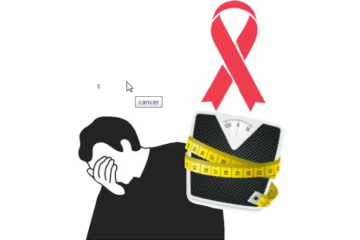Asthma and COVID-19: What to know?

Image Credit: Pharmaceutical Techonology
ISLAMABAD, July 10 (Online): COVID-19 is a highly infectious disease caused by the SARS-CoV-2 virus. As the disease primarily affects the respiratory system, people with moderate to severe asthma who develop COVID-19 may be at higher risk of developing severe symptoms.
People with asthma may have concerns about how COVID-19 will affect them. The best way to reduce the risk of developing severe illness from COVID-19 is by controlling the condition and maintaining consistent infection prevention habits. Asthma is a chronic lung condition that affects the airways and causesinflammation. This inflammation causes spasms and narrowing of the airways, which leads to wheezing, breathlessness, and coughing.
Generally, when a person contracts a respiratory virus, the infection sets the body’s immune response in motion. In people with asthma, this can lead to an overproduction of substances that only worsen inflammation. COVID-19 is slightly different. It causes an inflammatory process inside lung tissue rather than the usual bronchial inflammation that occurs in asthma.
Respiratory viral infections, such as COVID-19, can trigger and worsen asthma symptoms. According to the Centers for Disease Control and Prevention (CDC), it can also lead to pneumonia in people with moderate to severe asthma. However, at present, there is no evidence suggesting that people with asthma are any more likely to contract COVID-19 than anyone else.
For example, a 2020 study of 140 hospitalized people with COVID-19 in Wuhan, China, did not include any people with asthma. This suggests that asthma may not be a strong risk factor for contracting the virus. Despite this, according to the Asthma and Allergy Foundation of America (AAFA), other strains of coronavirus can worsen asthma. People with asthma should be extra cautious as research data is limited, and in its early stages.
According to the CDC, if people with asthma do contract the virus, they may be at higher risk of complications from COVID-19 than they are from other respiratory infections such as the flu. Asthma does not appear to be a strong risk factor for acquiring COVID-19. However, poorly controlled asthma may lead to more serious illness for those who contract COVID-19.
“Patients with severe asthma, immunodeficiency, and other chronic conditions where their immune system may be compromised are most susceptible to increased morbidity and mortality from viral infections in general, and we assume similar precautions should be recommended to these individuals for coronavirus.”
The CDC similarly suggest that people with moderate to severe asthma have a higher risk of getting seriously ill from COVID-19. This is because coronavirus affects the upper and lower respiratory tracts, including the nose, throat, and lungs. The virus may trigger an asthma attack or lead to pneumonia or other acute respiratory diseases.
People must continue to take their asthma medication as usual during the pandemic. Keeping asthma symptoms under control is one of the best methods people with asthma can take to protect themselves. According to the ACAAI, there is no evidence that asthma medications will increase the risk of contracting the virus or worsen outcomes of COVID-19.
Most people who develop COVID-19 get better at home with no additional medical treatment. People with severe symptoms or other health problems may require hospital care. Keeping asthma well controlled is vital in achieving a good outcome after developing COVID-19. According to the AAFA, uncontrolled asthma is a much higher risk to people than COVID-19.
People with moderate to severe asthma who develop COVID-19 may be at more risk of complications from the disease, although evidence is still limited. According to the European Lung Foundation (ELF), there have been very few cases of people with asthma experiencing severe COVID-19 complications. In the United Kingdom, people with asthma who developed COVID-19 are recovering.
The ELF note that a report in mid-March showed that of 196 people with COVID-19 who received treatment in intensive care in the UK, only 3 had underlying severe lung conditions. This research suggests that the majority of people hospitalized with severe complications do not have pre-existing lung conditions. Research into COVID-19 is constantly evolving. More data will provide a greater understanding of how COVID-19 may affect people with asthma.
A person with asthma can reduce their chances of developing severe illness from COVID-19 by keeping their asthma under control, practicing physical distancing, and following infection prevention guidelines. People with asthma may not be at a higher risk of contracting COVID-19, but they may be at higher risk of complications if they do develop it. At present, there is no evidence indicating that people with asthma are experiencing more severe complications than those who do not have asthma.
A limited amount of evidence also indicates that people with asthma and COVID-19 are recovering. People with asthma must continue taking their asthma medication as their doctor prescribes. Uncontrolled asthma can put people more at risk of respiratory problems and complications from COVID-19.
Stay tuned to Baaghi TV for latest news and updates!










